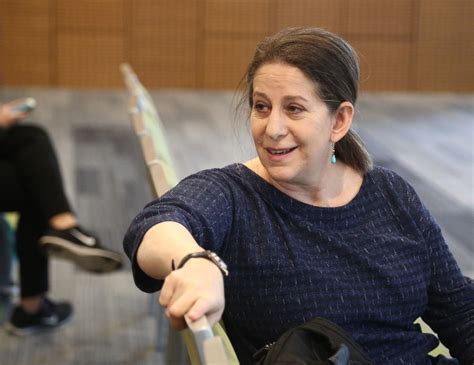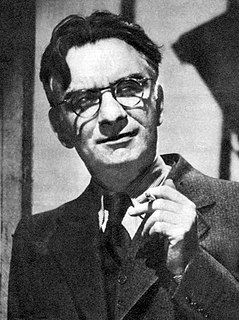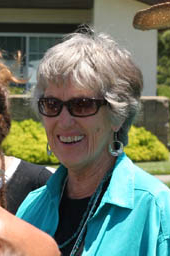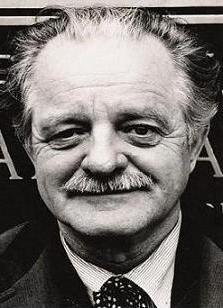Top 898 Inspirational Buddhist Quotes & Sayings - Page 14
Explore popular Inspirational Buddhist quotes.
Last updated on April 20, 2025.
A friend of mine told me a bunch of stuff on Buddhism and about Avicii being the lowest level of Buddhist hell, and it just sort of got stuck in my head. Later on when I went to setup a MySpace, I tried a bunch of names and they were all taken so I just kind of ended up with Avicii and then I got really attached to it.
What is dangerous about the far right is not that it takes religion seriously - most of us do - but rather that it condemns all other spiritual choices - the Buddhist, the Jew, the Muslim, and many others who consider themselves to be good Christians. The wall of separation between church and state is needed precisely because religion, like art, is too important a part of the human experience to be choked by the hands of censors.
Gonpo Tso was born a princess. As a young woman, she dressed in fur-trimmed robes with fat ropes of coral beads strung around her neck. She lived in an adobe castle on the edge of the Tibetan plateau with a reception room large enough to accommodate the thousand Buddhist monks who once paid tribute to her father.
Like inspirational quotes, which have been huge on Pinterest. Or looking at dog photos! We didn't know how to take those uses for Pinterest seriously until we realized, sometimes even I look at Pinterest to feel better, not just do something but feel happier, to feel connection, to feel humor, to know everyone goes through difficult times.
On the philosophical level, both Buddhism and modern science share a deep suspicion of any notion of absolutes, whether conceptualize as a transcendent being, as an eternal, unchanging principle such as soul, or as a fundamental substratum of reality. ... In the Buddhist investigation of reality, at least in principle, empirical evidence should triumph over scriptural authority, no matter how deeply venerated a scripture may be.
Fans of different races, castes, ethnicities and religions who together celebrate their diversity by uniting for a common national cause. They are my foundation, they are my family. I will play my cricket for them. Their spirit is the true spirit of cricket. With me are all my people. I am Tamil, Sinhalese, Muslim and Burgher. I am a Buddhist, a Hindu, a follower of Islam and Christianity. I am today, and always, proudly Sri Lankan
When it’s too good, you do it over again. Too good is too easy. If it’s too easy you have to worry. If you’re not lying awake at night worrying about it, the reader isn’t going to, either. I always know that when I get a good night’s sleep, the next day I’m not going to get any work done. Writing a novel is like working on foreign policy. There are problems to be solved. It’s not all inspirational.
Ignorance, vulnerability, fear, anger, and desire are expressions of the infinite potential of your buddha nature. There's nothing inherently wrong or right with making such choices. The fruit of Buddhist practice is simply the recognition that these and other mental afflictions are nothing more or less than choices available to us because our real nature is infinite in scope.
Now you are on the Buddhist way. Keep up your meditation, as there is no instant illumination. The mind moves slowly into this. Do not become attached to your method. When, in the course of your meditation, your consciousness will have expanded and been transformed, you will then recognize that all the ways are valid ways.
When you climb a ladder and arrive on the sixth step and you think that is the highest, then you cannot come to the seventh. So the technique is to abandon the sixth in order for the seventh step to be possible. And this is our practice, to release our views. The practice of nonattachment to views is at the heart of the Buddhist practice of meditation.
I have learned so much from God that I can no longer call myself a Christian, a Hindu, a Muslim, a Buddhist, a Jew. The Truth has shared so much of Itself with me that I can no longer call myself a man, a woman, an angel, or even a pure Soul. Love has befriended me so completely it has turned to ash and freed me of every concept and image my mind has ever known.
I think a lot of people trying to follow Buddhism these days are getting confused about sex and they don't understand what's going on. They've been exposed to a contemporary Christian idea that sex itself is evil and bad, which I'm not so sure was Jesus' idea. For me, the Buddhist approach isn't that sex itself is evil or bad but that sex is neutral. It's the way you do it that can problematic.
Buddhist nirvana ... is based on egolessness and is not anthropocentric but rather cosmological. In Buddhism, humans and the things of the universe are equally subject to change, equally subject to transitoriness or transmigration. A person cannot achieve emancipation from the cycle of birth and death until he or she can eliminate a more universal problem: the transience common to all things in the universe.
Crucial to how we feel is being aware of how we are feeling in the moment. The sine qua non of that is to realize that you are being emotional in the first place. The earlier you recognize an emotion, the more choice you will have in dealing with it. In Buddhist terms, it's recognizing the spark before the flame. In Western terms, it's trying to increase the gap between impulse and saying or doing something you might regret later.
The word mantra comes from two Sanskrit words man, ("to think") and tra ("tool'). So the literal translation is "a tool of thought." And that's how mantras are used in Buddhist and Hindu practices, as tools that clear your mind of distractions. Because when you focus on repeating that mantra over and over again, soon the noise will die down and all you will hear is your inner voice.
I think "Heroes of Cosplay" will show a lot of the positive things, like how much effort it takes to make a costume. These people on the show aren't taking shortcuts. As long as that effort gets through to the viewers, we will be inspirational. Then there will be people who watch the show that want to get in and hands-on make outfits.
Celibacy is one of the most unnatural things. It has destroyed so many human beings - millions - Catholic monks, Hindu monks, Buddhist monks, Jaina monks, nuns. For centuries they have been teaching celibacy; and the most amazing thing is, even in the twentieth century, not a single medical expert, physiologist, has stood up and said that celibacy is impossible, that in the very nature of things, it cannot happen.
I opened-up a yogurt, underneath the lid it said, "Please try again." because they were having a contest that I was unaware of. I thought maybe I opened the yogurt wrong. ...Or maybe Yoplait was trying to inspire me... "Come on Mitchell, don't give up!" An inspirational message from your friends at Yoplait, fruit on the bottom, hope on top.
My ethics, my sense of morality, my work ethic, my sense of compassion for suffering humanity, all of that comes directly out of the practice of poetry, as does my Buddhist practice. Poetry is a very important element in the history of Buddhism in general and in Zen in particular. It was really Zen that motivated me to change the way I perceive the world.
There's a conspiracy / to protect the young, so they'll be fearless, / it's why you travel - it's a way of trying / to let go, of lying. You don't sit / in a stiff chair and worry, you keep moving. / Postcards from the Alamo, the Alhambra. / ... / You, fainting at the Buddhist caves. / Climbing with thousands on the Great Wall, / ... / Having the time of your life, blistered and smiling. / The acid of your fear could eat the world.
Jesus represents a point of common ground an esteemed rabbi to the Jew, a god to the Hindu, an enlightened one to the Buddhist, a great prophet to the Muslim. Even to the New Age guru, Jesus is the pinnacle of God-consciousness. At the same time, Jesus is the divider. None but Christians see Him as a member of the Godhead on an exclusive mission to repair the broken world.
Would you say that any one sacred book is superior to all others in the world? ... I say the New Testament, after that, I should place the Koran, which in its moral teachings, is hardly more than a later edition of the New Testament. Then would follow according to my opinion the Old Testament, the Southern Buddhist Tripitaka, the Tao-te-king of Laotze, the Kings of Confucius, the Veda and the Avesta.
Basically, the Buddhist attitude is that you should not accept certain things through sheer faith. And for that you need a skeptical attitude. Buddha himself made this clear to his followers. He said you should not accept those things I taught out of respect for me, but rather through investigation by yourself.
One can be a faithful disciple of Jesus Christ without denying the flickers of the sacred in followers of Yahweh, or Kali, or Krishna. A globalization of evangelism 'in connection' with others, and a globally 'in-formed' gospel, is capable of talking across the fence with Hindu, Buddhist, Sikh, Muslim - people from other so called 'new' religious traditions ('new' only to us) - without assumption of superiority and power
......the interesting thing was that the Roman Catholic monks and the Buddhist monks had no trouble understanding each other. Each of them was seeking the same experience and knew that the experience was incommunicable. The communication is only an effort to bring the hearer to the edge of the abyss; it is a signpost, not the thing itself. But the secular clergy reads the communication and gets stuck with the letter, and that's where you have the conflict.
If there's one thing I've learned in the last 18+ years of interacting with over 60,000 people during my vegan lecture tour, it's that everyone is the same, whether they are Christian, Jewish, Muslim, Buddhist, Hindu, atheist, Republican, Democrat, independent, socialist, fascist, black, white, Asian, Latino, Native, pro-life, pro-choice, pro-gun or anti-gun.
If you exchanged wedding vows, tape them to your bathroom mirror and read them aloud to yourself every morning along with the ritual brushing of teeth. It's not realistic to believe that you will live your promises as a daily practice -- unless you're a saint or a highly evolved Zen Buddhist. Not where marriage is concerned. But you can make a practice of returning to your vows when the going gets rough.
The identity of just one thing, the "clash of civilization" view that you're a Muslim or a Hindu or a Buddhist or a Christian, I think that's such a limited way of seeing humanity, and schools have the opportunity to bring out the fact that we have hundreds of identities. We have our national identity. We have our cultural identity, linguistic identity, religious identity. Yes, cultural identity, professional identity, all kinds of ways.
There are many graphic artists who have interpreted The Ancient One as a Tibetan Buddhist Lama, we're kind of shifting that a bit. We're trying not to be fixed, we're trying not to be fixed to any one thing, any one gender, any one spiritual discipline, and any one race even; we're just trying to wing it beyond that. So it's a new gesture really, just another interpretation.
Within the framework of the Buddhist Path, reflecting on suffering has tremendous importance because -realizing the nature of suffering, you will develop greater resolve to put an end to the causes of suffering and the unwholesome deeds which lead to suffering. And it will increase your enthusiasm for engaging in the wholesome actions and deeds which lead to happiness and joy.
Then another thing, now this is mainly for our interest about Tibet, our struggle. Whole struggle depend on within person. For dangerous. Foolish! Not for this only institution or even not only for Buddhist dogma, but before national sort of right, our right. So therefore this struggle must carried by people themselves.
I'm not sure if Cupitt himself still uses this term, but it's useful in suggesting that, actually, there are more choices than the choice between nihilism and faith. In fact, the issue may not be faith as such but the fact that for millennia, Christianity has buttressed itself with a particular kind of metaphysics that has now seemingly reached the end of its life-span. But perhaps Buddhist metaphysics could provide an alternative here - or, at least, offer a direction of travel.
When I ask people to contemplate selflessness, the sometimes react as if I've asked them to put their house on the market or give away all their money. If there was a self that existed in the way we think, discovering selflessness would be like putting our house on the market. But in the Buddhist tradition, the discovery of selflessness is called "completely joyful." It's not called "the raw end of the deal," or "I'd rather go back to bed," or "This is scary and depressing."
There is this persistent theme in all of these notions that death is made more easy, whatever that means, if you've learned the territory before you get there. And you know, in the Mahayana Buddhist situation it even becomes as extreme as saying; 'life is essentially a preparation for death, a studying of the maps of a learning of the skills a packing of your picnic basket so that when you get out there and demons are sniffing you up one side and down the other you don't bungle your mantras'.
One of the happier ironies of recent history is that even as Tibet is being wiped off the map in Tibet itself, here it is in California, in Switzerland, in Japan. All over the world, Tibetan Buddhism is now part of the neighborhood. In 1968, there were two Tibetan Buddhist centers in the West. By 2000, there were 40 in New York alone.
Aesthetics is not an end in itself. But in our culture, which is becoming more multi-sensory and less respectful of God, we have a responsibility to pay attention to the design of the space where we assemble regularly. In the emerging culture, darkness represents spirituality. We see this in Buddhist temples, as well as Catholic and Orthodox churches. Darkness communicates that something serious is happening.
In the early Buddhist view, then, a persons identity resides not in an enduring self but in his actions (karma)- that is in the choices that shape these actions. Because the dispositions formed by previous choices can be modified in turn by present behaviour, this identity as choice-maker is fluid, its experience alterable. While it is affected by the past, it can also break free of the past.
Imagine a multidimensiona l spider's web in the early morning covered with dew drops. And every dew drop contains the reflection of all the other dew drops. And, in each reflected dew drop, the reflections of all the other dew drops in that reflection. And so ad infinitum. That is the Buddhist conception of the universe in an image.
I never really wanted to have a Guru, I was more interested in Buddhist philosophy and meditation, and had a psychological background in college, but he had so much love. To be with him, there was nowhere else to be and nothing else to do. Nothing he taught, philosophy or meditation, are the things I went to India to look for, or was interested in, but he sort of jumped into my heart and then pulled, he pried it open.
Dreams are a reservoir of knowledge and experience yet they are often overlooked as a vehicle for exploring reality. In the dream state our bodies are at rest, yet we see and hear, move about and are even able to learn. When we make good use of the dream state it is almost as if our lives were doubled: instead of a hundred years we live to be two hundred -- Tibetan Buddhist Tarthang Tulku from
I live for the moment. I'm basically a Buddhist-type person. I'm just here right now, and I don't think about what's going to happen a hundred years from now. I try to concentrate on what's going on right now. But I'm really trying to run this company like it is going to be here a hundred years from now. That's what's important.
A myth is a fantasy, a preferred lie, a foundational story, a hypnotic trance, an identity game, a virtual reality, one that can be either inspirational or despairing. It is a story in which I cast myself; it is my inner cinema, the motion picture of my inner reality - one that moves all the time. No diagnosis can fix the myth, no cure can settle it, because our inner life is precisely what, in us, will not lie still.
God is not a Christian, God is not a Jew, or a Muslim, or a Hindu, or a Buddhist. All of those are human systems which human beings have created to try to help us walk into the mystery of God. I honor my tradition, I walk through my tradition, but I don't think my tradition defines God, I think it only points me to God.
I think 'Heroes of Cosplay' will show a lot of the positive things, like how much effort it takes to make a costume. These people on the show aren't taking shortcuts. As long as that effort gets through to the viewers, we will be inspirational. Then there will be people who watch the show that want to get in and hands-on make outfits.
Mythology is not a lie, mythology is poetry, it is metaphorical. It has been well said that mythology is the penultimate truth--penultimate because the ultimate cannot be put into words. It is beyond words. Beyond images, beyond that bounding rim of the Buddhist Wheel of Becoming. Mythology pitches the mind beyond that rim, to what can be known but not told.
Fighting for one's freedom, struggling towards being free, is like struggling to be a poet or a good Christian or a good Jew or a good Muslim or good Zen Buddhist. You work all day long and achieve some kind of level of success by nightfall, go to sleep and wake up the next morning with the job still to be done. So you start all over again.
Both my parents were agnostic. My mother was kind of a Buddhist. She had some spiritual tendencies, but they were kind of flaky - New Agey, you know? Which is partly why I'm suspicious of that sort of thing. I'm skeptical of any spiritual practice that doesn't involve other people and doesn't involve some sort of consistent tradition.


















































